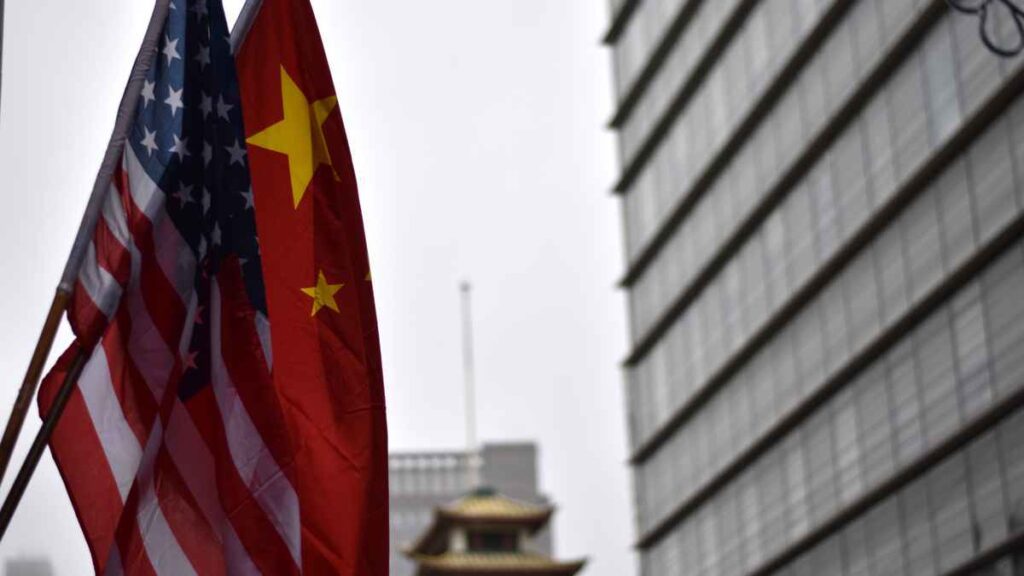
U.S. Big Tech legion seems to be torn between two economic powerhouses.
In a battle for dominion between the East and the West, Big Tech companies are forfeiting from the Chinese market to prevent getting caught in the conflict, except for Apple, according to the BBC.
Last week, Microsoft announced news of shutting down its professional network platform, LinkedIn, in China, despite the giant’s resumable operations in the country. The choice made came after compliance with Chinese authorities became quite an ordeal for the company to sustain.
With the ever-growing emergence of regulatory scrutiny on tech companies in China, U.S.-based enterprises are finding it challenging to accommodate the governmental demands, and Apple is encountering a list of obligations owed to the government.
According to the BCC, last week, the iOS developer witnessed the removal of two vigorously powerful applications from its App Store in its Chinese market. Later, news surfaced that Amazon’s Audible, and Yahoo Finance were also extracted from the store.
The mogul’s Apple Censorship group disclosed that recently, the company observed an extensively high rate of applications being removed from its store.
One cannot help but marvel at the reasons behind these tactics adopted by the Chinese authorities against the American Big Tech giant and if the time is of significance to China’s plan to surpass U.S. influence in the tech market.
In the last couple of months, Beijing has been tightening its scrutinizing hold on the tech industry. A factor paraded in Microsoft’s and Apple’s domestic battle with the Chinese authorities amidst regulatory ripple on the innovative sector.
If we look closer, last months’ event led by the country’s harsh regulation on its own Big Tech firms, such as Alibaba, Tencent, and Huawei, left U.S.-based companies subjected to similar behavior, as China grows exasperated from all the supremacy forged from tech companies.
“The crackdown suggests that both Apple and Microsoft are very aware that their position is more tenuous than it’s been in recent years. They know they need to walk carefully,” author of The Great Firewall of China, James Griffiths, said in a statement.
Microsoft’s decision to extract LinkedIn from the Chinese market was mostly driven by law due for legislation on November 1st.
The personal Information Law (PIPL) forces these firms to abide by any regulation imposed on them. Meaning, the software developer will be “facing a significantly more challenging operating environment and greater compliance requirements in China.”
From there, immerges another riddle.
Why didn’t Apple follow in its Big Tech fellow’s footsteps? Why can’t the iPhone parent extract its manufacturing plans from the Chinese market?
The answer is simple. For Apple, it is not a plain black and white scenario, as it is with Microsoft’s LinkedIn.

The company’s manufacturing operations are embedded deeply into the country’s market, more than any other Big Tech company. This product integration into the Chinese market increases demands for products.
Apple’s 2021 second quarter (Q2) revealed a $15 billion revenue in China and Taiwan alone, marking a phenomenal figure compared to other tech companies since the iOS developer’s global supply chain relies heavily on Chinese manufacturing.
For this reason, Apple is comprehensively aware that it must comply with the powerhouse’s rules, even if it would force censorship to its Apple Store.
Although Beijing’s broadening dominion on tech firms might highlight some red flags in reference to the country’s view on the industry, it does not mean that China is extensively monitoring and fixating its gaze at U.S.-based tech firms.
China clearly wants global tech firms to abide by its set of rules, as it is rightfully valid for a rising reign to impose authorities on expanding tech influence on its territory.
“The Western media is wearing tinted lens when they say China is over-regulating. The U.S. should think more about whether its own government is setting the restrictions too high in its exchanges with China, especially for those high-tech enterprises,” a professor at the Institute of International Relations of the China Foreign Affairs University, Li Haidong, told the Global Times.
Beijing’s desire to push lucrative tech companies to abide by Chinese laws on its province will force American firms to fasten their adaptation to the latest adjustment to the country’s market.
With U.S. empowered restrictions on China, one cannot deny that time would eventually come for U.S. Big Tech firms to be affected by their country’s harsh tactics on Chinese firms.
In this case, China could either be retaliating against U.S. sanctions or simply exacting regulatory tech authority on its turf. Or it could be both.